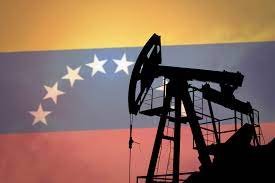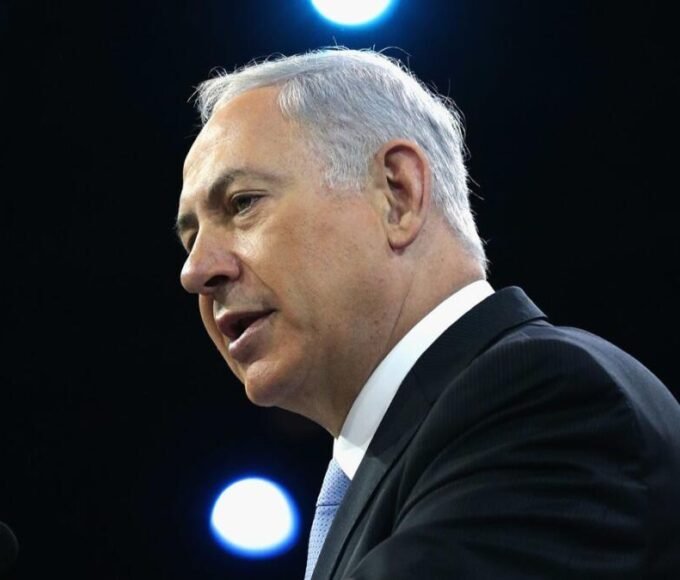Table of Contents
The world of geopolitics is never still. Whenever tensions rise between major powers, developing nations like India find themselves caught in the middle, trying to balance their economic needs with the fast-changing international order. Right now, the whispers around Washington suggest that the United States might be gearing up for a military confrontation with Venezuela. While official confirmations are nowhere to be found, the very possibility has rattled oil importers—including India.
India, with its ever-growing energy appetite, heavily relies on international crude to power its industries, transportation, and economic growth. A sudden jolt in global oil supply chains, particularly from a critical source like Venezuela, could send ripples through the Indian economy. The big question is: if the U.S. truly moves militarily against Venezuela, where will India’s oil come from?
Venezuela: India’s Old Oil Friend
Venezuela may be politically isolated on the international stage, but its oil fields tell another story. The South American country has some of the largest proven crude reserves in the world. Over the past decades, despite political instability, India and Venezuela have maintained a surprisingly steady oil trade relationship. Indian refiners, especially state-owned companies, have imported Venezuelan crude to balance geopolitical risks and diversify away from overdependence on the Middle East.
Venezuelan crude is heavy and not always easy to refine, but Indian refineries have tailored their systems to process it. This energy relationship gave New Delhi a relatively cost-effective and secure channel of oil imports, bypassing the political tussles that often dominate the Middle East.
Now, with the U.S. possibly gearing up for confrontation, those supply lines might be disrupted at a time when India’s energy demand is expected to soar.
America’s Agenda and What It Means for Oil Markets
The U.S. has long had a complex relationship with Venezuela, often framing it as a battle between democracy and authoritarianism. Since the rise of leaders who positioned themselves against Washington’s influence, Venezuela has been locked in sanctions, restrictions, and limited trade options. For years, U.S. sanctions on Venezuelan oil crippled its ability to reach big markets. India was one of the few who managed to keep ties alive, sometimes through intermediaries, sometimes directly.
But an actual military strike or a direct conflict could change the rules of the game. The oil market runs on confidence, and any sign of war instantly raises panic among traders. Prices shoot up, shipping routes are disrupted, and every barrel of oil suddenly becomes part of a political struggle.
For India, this would not just be about the price tag—it would also be about availability. If Venezuela is completely knocked out of the export game, Indian refiners lose one of their critical mix options. The question is not whether oil will be available globally, but whether it will be affordable and secure for New Delhi.
India’s Energy Hunger Keeps Growing
India is the third-largest consumer of oil in the world. With a population of over 1.4 billion people aspiring for greater mobility and industrial expansion, the demand for crude oil keeps rising. But here’s the reality: India imports almost 85% of its oil needs. That means any disruption across global energy markets is a direct hit on Indian households, factories, and transport costs.
In the past, India has used clever diversification strategies, leaning on suppliers across the board—Russia, Iraq, Saudi Arabia, Nigeria, and, of course, Venezuela. The aim has always been to ensure that if one door shuts, there are others open. But keeping that balance is becoming tricky in a world where energy politics is taking center stage again, and wars are no longer distant headlines but supply chain nightmares.
If Not Venezuela, Then Who?

If the U.S. steps up pressure on Venezuela and India loses that crude channel, where does New Delhi turn? There are a few possibilities:
Middle East Giants
Saudi Arabia, Iraq, and the UAE already supply a large portion of India’s oil imports. By leaning harder on these partners, India could secure additional shipments. But the challenge is pricing—these countries are always in demand, and they have their ties with big Asian buyers like China and Japan. That often means India is forced to compete in premium markets.
Russia’s Energy Pivot
Russia has emerged as a surprising lifeline for India’s oil security, particularly after western sanctions over the Ukraine conflict shifted Moscow’s crude towards Asian buyers. At discounted rates, Russian oil has offered significant relief to Indian refiners. If Venezuelan supply is blocked, India might deepen this reliance. However, shipping routes, insurance hurdles, and rising competition from China could complicate this strategy.
African Suppliers
Nigeria and Angola also provide alternate oil flows to India. While not as massive as Middle Eastern suppliers, they allow India to balance its portfolio and avoid overdependence on one geography. Africa could be one of the swing regions to ease the shock of a Venezuelan cutoff.
Domestic Push and Renewable Transition
Of course, the smartest long-term bet lies within India itself. Domestic oil exploration, while limited, continues. More importantly, India is heavily investing in renewable energy—from solar parks to green hydrogen. None of these can immediately replace Venezuela’s crude, but they are steps toward ensuring resilience in a crisis-driven global market.
The Ripple Effect on Indian Economy
If Venezuelan crude disappears, the immediate effect would be price volatility in the Indian market. Petrol, diesel, and cooking gas prices could shoot up, feeding inflation, squeezing households, and raising transportation and manufacturing costs. This could strain the government’s fiscal policies, as subsidies might jump again to shield the poor and the middle class.
Additionally, higher import bills would pressure India’s foreign exchange reserves, widen the trade deficit, and potentially weaken the rupee. For a fast-growing economy like India, all of this would slow momentum at a time when it needs stability the most.
Geopolitics: India’s Balancing Game
New Delhi’s biggest challenge is not just about finding replacement oil but also about managing diplomacy. On one hand, it needs to maintain good relations with Washington, especially as India seeks closer ties on defense, technology, and investment. On the other hand, breaking ties with Venezuela under American pressure risks India’s image as an independent foreign policy player.
So, India will have to do what it has always done skillfully—walk the tightrope. That might mean quietly diversifying away from Venezuelan crude, while keeping relations diplomatically alive with whichever government stands in Caracas after U.S. intervention, if it materializes.
What Lies Ahead
Speculating about a U.S. attack on Venezuela may feel far-fetched to some, yet the global oil market reacts not just to actions but to whispers. Even the talk of such a move is enough to heighten anxiety among import-dependent nations.
India, with its foresight and adaptability, has weathered oil crises before—from the Gulf Wars to sanctions on Iran. The real strength lies in New Delhi’s ability to act pragmatically, explore every possible supplier, and build alliances that go beyond politics.
The next few months may determine whether India secures its energy future or finds itself shelling out billions more for the same barrel of oil. But one thing is certain: India will not be a silent spectator. It has too much at stake and too many people relying on affordable energy to let external conflicts dictate its economic destiny.
Conclusion
The possibility of the United States escalating conflict in Venezuela is not simply a South American issue. It’s a global energy story with massive consequences for India. From gasoline prices in Delhi to industrial output in Mumbai, the ripple effects would be deeply felt.
India has a wide web of options—from Russia and Saudi Arabia to African suppliers and renewable expansion—but the transition away from Venezuela would not be without immediate turbulence. The story here is not whether India can survive without Venezuelan oil. The story is how quickly and decisively India can adapt when global politics throws yet another curveball at global supply chains.
India has done it before. And if the whispers turn into reality, it will have to do it again—faster, smarter, and stronger.
Read More: Pakistan Breaks Silence, Stuns World on 1971 War Apology Debate










Leave a comment